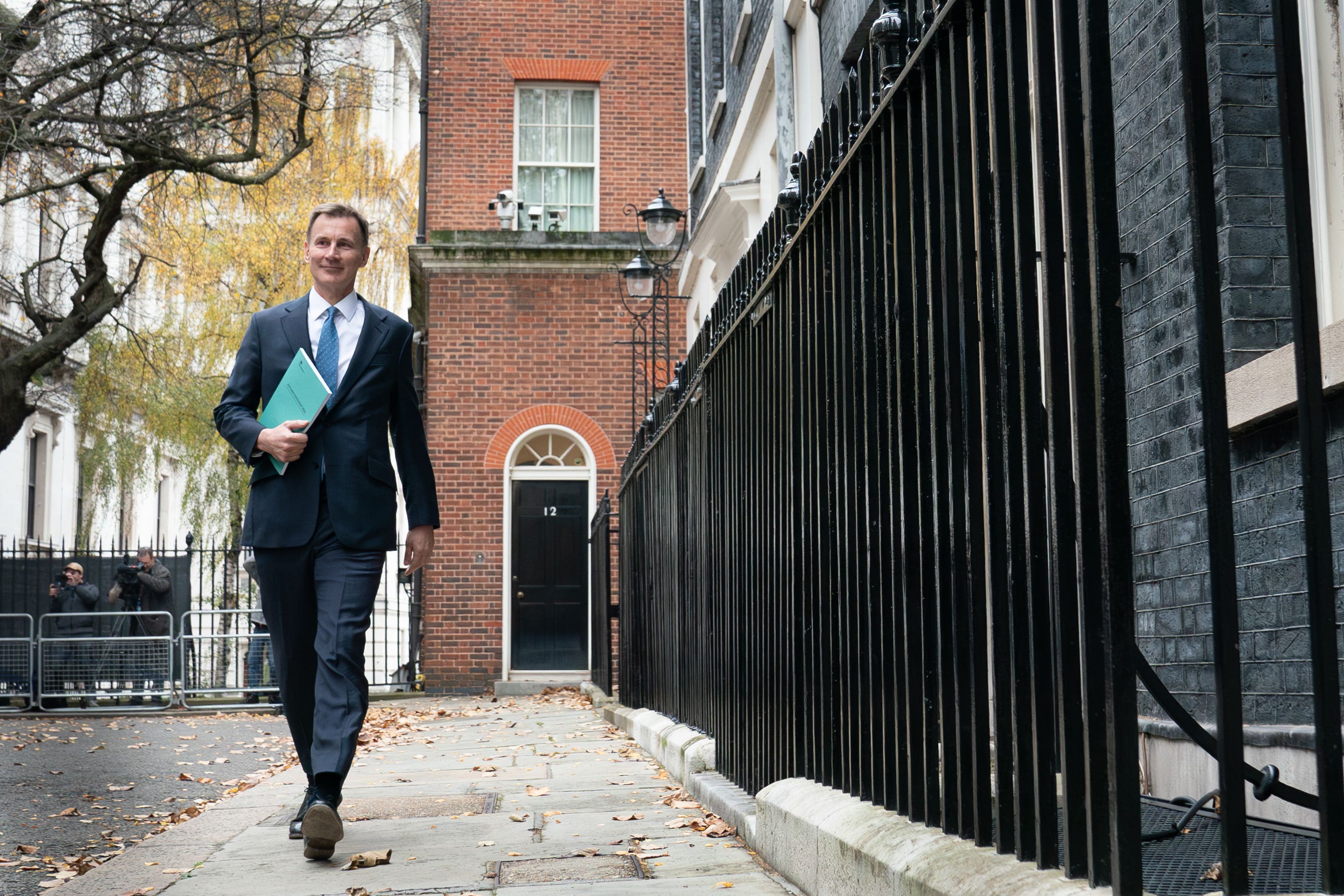UK economic growth forecasts for 2024 set to be downgraded after recession
Chancellor Jeremy Hunt said this week he wanted to move towards a ‘lower tax economy’ in a hint at a pre-election giveaway to voters.

The UK’s official forecaster is expected to slightly downgrade its short-term growth predictions for the sluggish UK economy, according to leading economists.
The lower growth predictions are set to result in reduced tax revenues which could have an impact on the prospect of potential Government tax cuts.
It comes as the the Chancellor is expected to cut “some spending” and shrink his fiscal headroom in order to finance any tax cuts at Wednesday’s spring budget.
Jeremy Hunt said this week he wanted to move towards a “lower tax economy” in a hint at a pre-election giveaway to voters in the form of a national insurance or income tax cut.
However, he stressed the need to act in a “responsible” way, in a sign that plans could be restrained compared to the hopes of some Tories.
Economists have said the changing economic conditions since Mr Hunt’s autumn statement have done little to improve his financial firepower ahead of a key budget.
In November, the Office for Budget Responsibility (OBR), the Government’s official forecaster, said the Chancellor had £13 billion of headroom to meet fiscal rules.
Economists have said ahead of the latest budget that this may have increased slightly, to around £18 billion, ahead of any new policies, due to a reduction in inflation and improved interest rate projections.
However, this headroom is less than predicted a few weeks ago when interest rate cuts appeared more imminent.
Meanwhile, the contraction in the economy over the second half of 2023, which resulted in a recession, and sluggish growth in GDP (gross domestic product) more recently could also prove restrictive.
Analysts at Liberum said: “There’s limited headroom for fiscal loosening.
“GDP nominal downgrades could lead to lower fiscal headroom, partially offset by lower interest payments.”
On Wednesday, the OBR will also reveal its latest economic growth projections.
In its previous forecast in November, the OBR had predicted 0.6% growth in GDP for 2023, with 0.7% growth in 2024.
However, last year the UK economy ultimately fell short of this, with 0.1% growth in GDP, according to the Office for National Statistics (ONS).
This was lower than expected after a contraction over the final half of 2023, which also meant the UK was in a technical recession.
Economists expect the UK to swiftly return to growth after the recession but widely predict subdued growth in 2024, with projections below the OBR’s previous forecast.
Experts at Pantheon Macroeconomics and Oxford Economics are both expecting 0.4% growth in 2024.
Pantheon said it expects lower-than-expected growth to cut tax revenues by around £4 billion this year, although this is expected to dissipate over the next five years.
The Treasury is expected to see recent population growth help to drive a rise in tax revenues over the longer term.
Borrowing forecasts are also expected to be reduced on Wednesday due to improved interest rate expectations.
So far this fiscal year, the Government has borrowed around £9 billion less than expected and is currently on track for borrowing of £114 billion for the year to the end of March.
The OBR had previously predicted borrowing of £123.9 billion.
Experts at Deutsche Bank said the Chancellor is likely to reduce some spending and leave himself with very small levels of financial headroom in order to push through any giveaways to households.
“We think it’s likely that some spending gets trimmed in order for the Chancellor to afford any sizeable tax giveaways,” according to economists at the bank.
“On the fiscal headroom, we think the Chancellor will be left with something closer to what he had last March: £6.5 billion.”
Bookmark popover
Removed from bookmarks